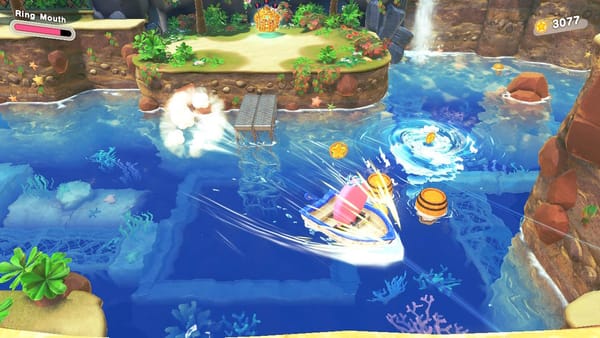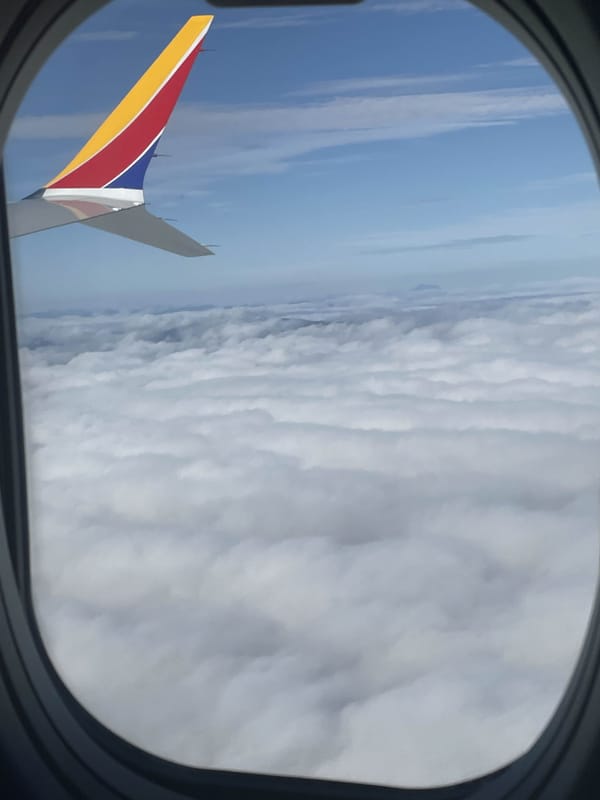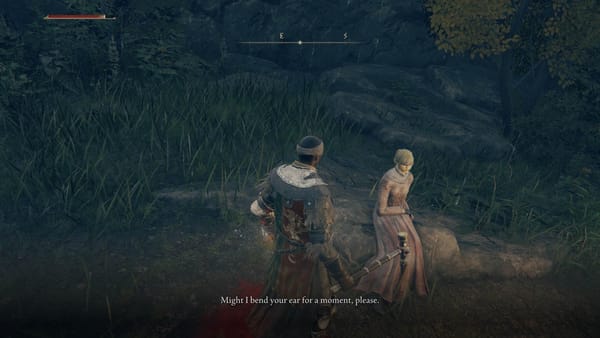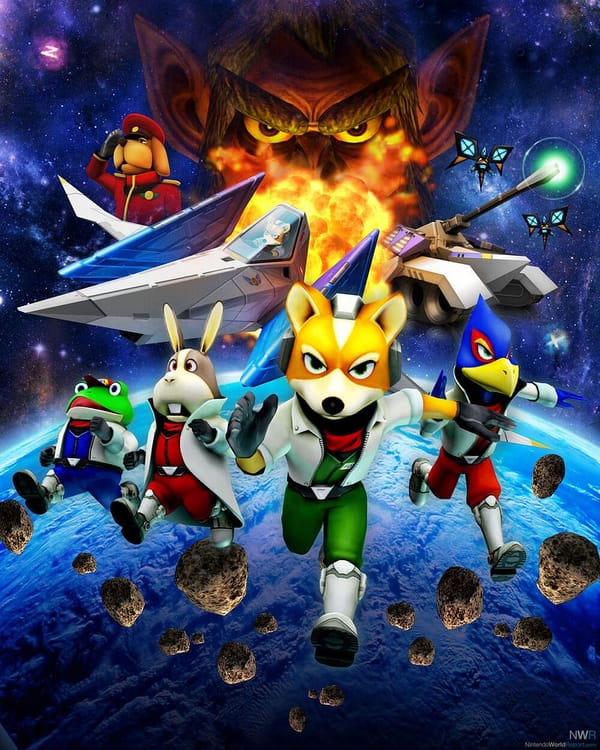Tackling the Backlog, Issue 4 — May ‘23
Exploring a brand new galaxy, and an update on where I’ve been.
Exploring a brand-new galaxy.
Hello and welcome to the fourth issue of Tackling the Backlog! This month’s issue is all about Mass Effect Andromeda, and how I spent such a long time on this game between everything else going on in life. Enjoy!
“Andromeda’s Finest.”
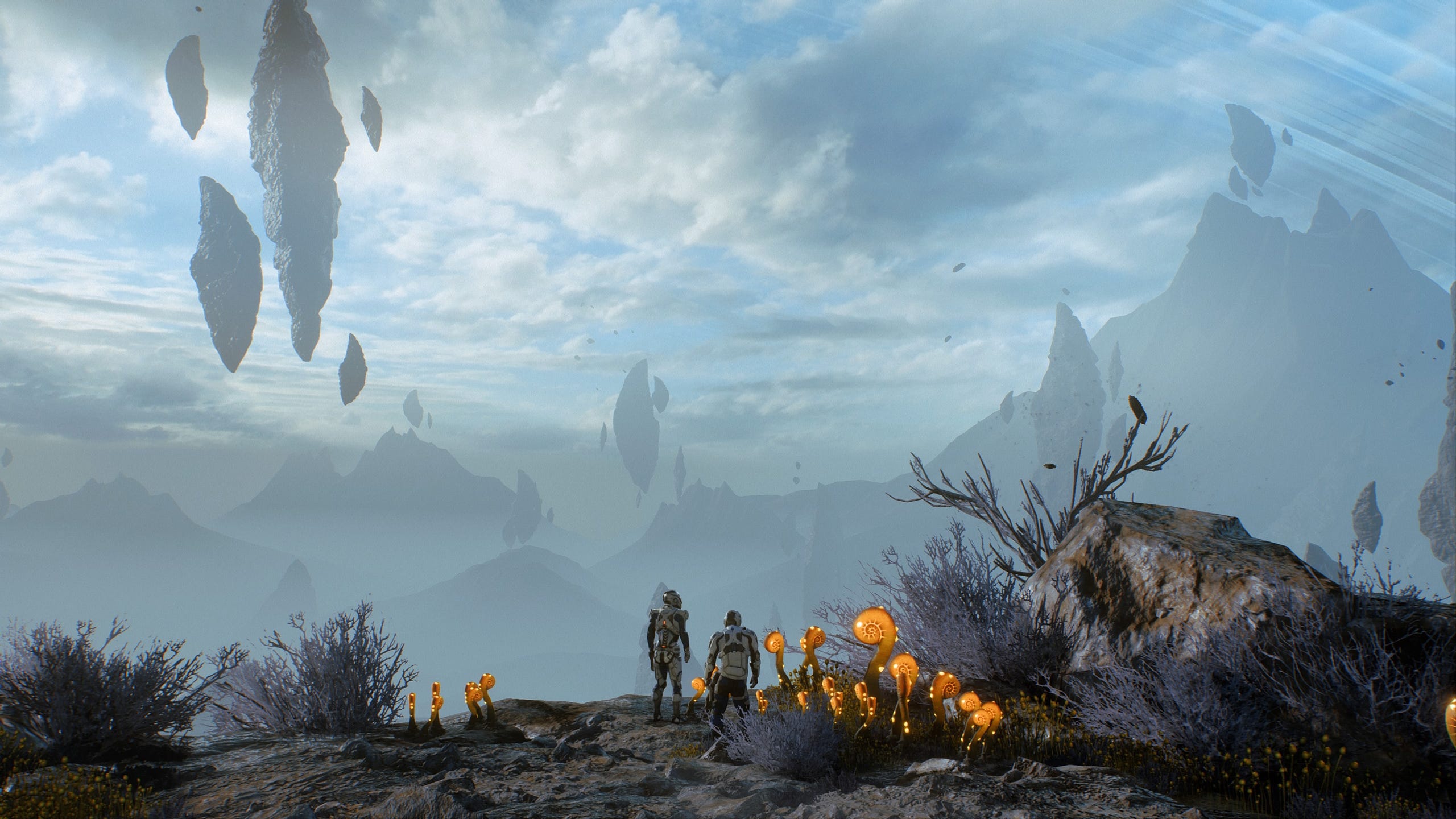
For starters, I’d like to go over my history with the Mass Effect franchise. I first played the trilogy last year, creating my Commander Shepard and getting immersed in the galaxy in front of me. Mass Effect was one of those games that came out a bit too early in my life, taking the spotlight when I was in elementary school. I’d heard bits and pieces about it online, but never enough to think it was worth playing. Fast forward a few years and I come across a YouTube video detailing a complete playthrough of the game from start to finish. After seeing the space opera that was Mass Effect, and being even more intrigued by how all three games were connected by previous choices, I decided to grab the collection and give it a go.
My backstory was that I was a colonist on Mindoir in the Attican Traverse, the sole survivor of physical and psychological torture after a mission gone wrong, a hardened soldier who until this point had known nothing but suffering. I joined the Alliance to be the first human Spectre and do good for humanity and the galaxy. I witnessed Kaiden Alenko’s loss in the line of duty, stopped Saren from bringing down the citadel, joined forces with Cerberus (reluctantly), faced the constant threat of the Reapers, and committed a sacrifice that unified every living being in the galaxy to work together for a brighter future.
So, imagine my surprise when I learned that there was more after this. A story that happened after my adventures as Shepard, taking place in a whole new galaxy separate from my adventures. I had to give it a chance.
Initially, I was wary of Mass Effect Andromeda. It had big shoes to fill following up one of the best trilogies in gaming, being subject to poor initial reviews, and this video showing up in my YouTube feed didn’t paint a better picture of the game either. When I finished the original trilogy, I had no intention of ever playing its poor excuse for a successor. Then one day I stumbled across an RPG Site article that gave the game the benefit of the doubt and decided that maybe I did have $10 to throw at a whole new Mass Effect. I bought a used copy from my local GameStop and installed the game the same day, taking my first steps into the Andromeda Galaxy.
Honestly, I was impressed. The game came out in 2017, so the graphics were up to modern standards. Character customization was much more detailed than its predecessors but suffered from a lack of good hairstyles. The story’s background and placement in the timeline allow for it to not be impacted by the events of the trilogy’s end, as the people stuck in cryo pods would most likely not be affected by the shared network of knowledge I achieved at the end of Mass Effect 3. The beginning of the game establishes that the Milky Way species have all contributed to the Andromeda Initiative, a plan to put people onto ships and have them go on a journey to colonize new space in the Andromeda galaxy. Alec Ryder, the player’s father, is the Pathfinder for humanity, leading the front to colonize a host of planets in after 600 years of being asleep. Eventually, the role of Pathfinder falls onto the player character, dubbed ‘Ryder’ as it’s their last name (just like Shepard in the original trilogy) and they inherit Alec’s SAM implant, an AI that lives symbiotically with the Pathfinders of each species that embarked on the journey. From here on out the core gameplay is about finding planets in different systems of the Andromeda Galaxy and doing various story and side missions, and smaller tasks to bring the worlds to 100% viability to sustain Milky Way life.
The game is full of smaller stories that contain themselves in side missions and, for the most part, are just as interesting as the main story. One task has Ryder going to different sections of planets to grab memory fragments and learn about Alec Ryder’s past and the years leading up to the Andromeda Initiative. Another has the player running around Aya, the homeworld of Angara, and seeing their opinions on humanity after first contact. Others are partner missions used to help the player learn more about their crew and who they are outside of the main mission. Side quests integrate themselves into the main story as well, pushing the player into relationships with other characters only to have it coincide with a major political dispute on the planet. I was a big fan of this, it felt natural and tied the concurring events going on on each planet together well. While these missions are fun, many of the others are simply telling the player to go to one planet to hear a few lines of dialogue, then go to another planet and do the same thing, and then do it a third or fourth time to finish the mission. These are abundant and tedious and can be a small part of getting a planet to 100% viability. While they help to make the world feel more lived in, it would help if there weren’t nearly as many of these styles of missions.
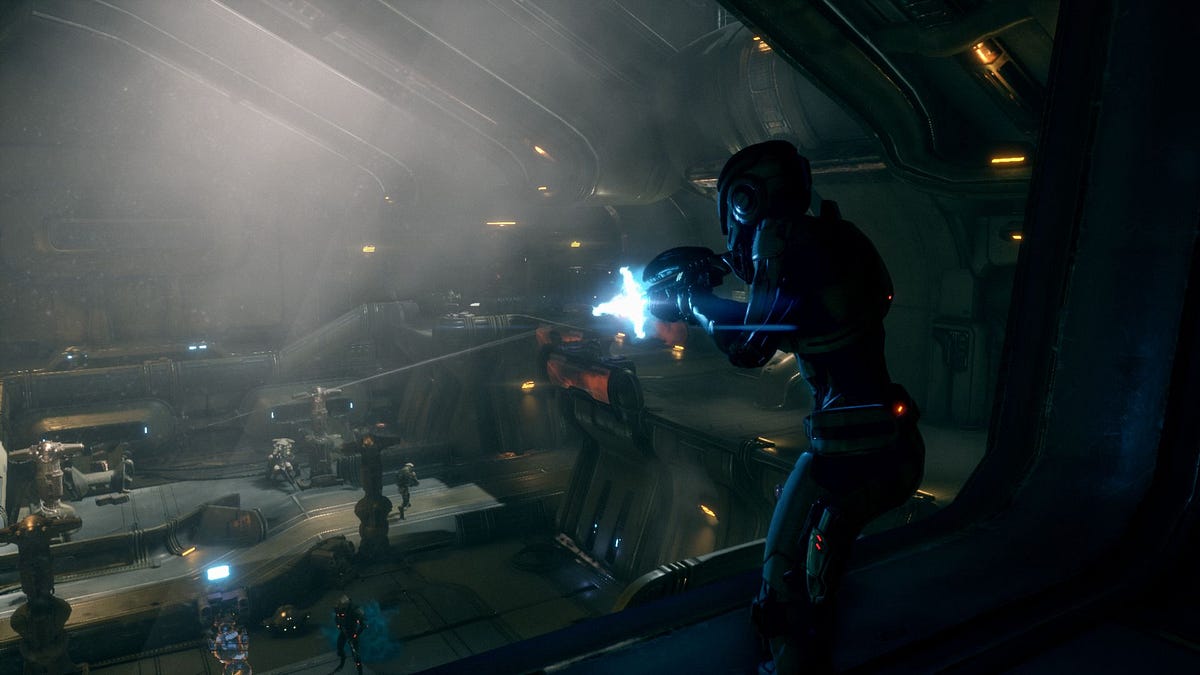
The stories of the original trilogy and Andromeda are two sides of the same coin of humanity trying to help the galaxy in a major way. The difference is that the events of Andromeda take place after Mass Effect 1 & 2, so humans don’t have to fight for their spot in the galaxy anymore. Now humans are an established and respected species with a Pathfinder doing their best to guide them through the galaxy. The main story of the game centers itself around the mystery of the Andromeda galaxy, including a new enemy species known as the Kett, and Remnant technology that has the ability to terraform planets and change their environments entirely.
While Ryder is generally looser and more relaxed than Shepard was as a character due to the vast difference in their roles, Ryder slowly takes on the role of Pathfinder and takes their work much more seriously. I enjoyed that Ryder had more dialogue options than Shepard too because it allows for a more interesting and diverse character. As for the cast that joins the player on their mission, there isn’t anything spectacular to report back about. Two humans, a Krogan, a Turian, an Asari, and instead of a Quarian this time it’s an Angaran. While they characterize the crew in interesting ways like having them talk to each other while riding in the Nomad, they just aren’t vibrant personalities.
Cora is a human who studied with Asari commandos, but she’s very militaristic, professional, and dry. She’s critical and jealous of Ryder becoming the new Pathfinder instead of her, and for good reason as Ryder is essentially a nepo baby (albeit in the worst way because they’re an orphan now too). It sounds like a really interesting dynamic on paper, but the delivery falls flat with their relationship. Liam is a human Crisis Specialist who wants to do whatever he can to help people and seems to fit into the chaotic good alignment, but that’s all he has going for himself. Drack is a Krogan who’s also a grumpy old man. That’s it. Peebee, this game’s Asari, is like if Liara was outgoing and adventurous instead of being shy. I say that because their only similarities are that they’re both archeologists and can be romanced by the main character. The only characters that feel like they’ve got a little depth are Vetra and Jaal. Vetra is a Turian who was abandoned by her father and forced to raise and take care of her and her sister. She deals with the pain of being forced into a maternal role, letting go of her sister and letting her be on her own, and being a spectator to this growth is interesting. Jaal is probably the deepest character in the crew. He’s an Angaran, the native species of Andromeda, and the writers made sure to let him make him the most fleshed-out character in the game. Much of his dialogue is structured around his culture as well as his admiration for Ryder as a foreigner who looks to embrace the Angaran culture. He feels like an original trilogy alien character but much more fleshed out and integral to the plot.
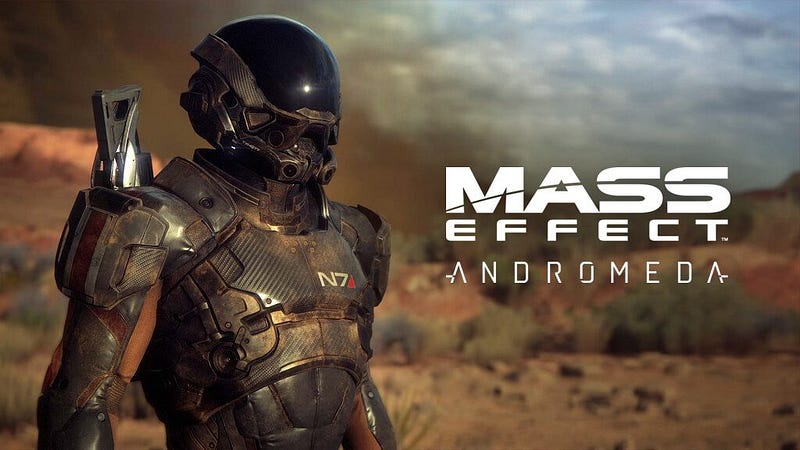
From a gameplay standpoint, Andromeda takes a slightly different approach to the overall experience. The gunplay still feels like the original trilogy with some ducking behind cover in a third-person perspective, but the open world allows for wider environments and more room to run around and engage the enemy directly. This also means that classes and abilities are much more free-form with Skill Points being used to unlock abilities, which in turn unlocks and upgrades classes. There’s a much wider array of abilities to choose from that work well in the expanded environment, and I was a huge fan of this because it incentivized trying out different skills and abilities throughout the game. This does come at the cost of not being able to use your party members’ abilities on command like in previous games, but I didn’t mind it all that much. The car is also back, but it’s only used for traversal which is a MAJOR bonus compared to before.
Mass Effect Andromeda was a pleasant surprise. To me, its gameplay felt reminiscent of Mass Effect 3 where the major focus was completing objectives to see a bar go up, and while ME3 is my least favorite of the trilogy, I think Andromeda handled the task better by using this method to start the series rather than end it. While parts of the game felt bogged down by tedious side quests, the combat and some story beats worked well. I look forward to another Andromeda game so I can see how Ryder and his crew develop, there’s a lot of potential here that has a chance to shine.
Another month, another slew of memories. Here are some impactful moments from my playthrough:
- The option to romance Keri T’Vessa, the news reporter whointerviews Ryder throughout the game. While it’s only a fling due to both Ryder’s and her busy schedules, the way she speaks to Ryder makes it seem like there may be a chance for something more in the future.
- Suvi, one of the pilots of Ryder’s ship, opens up about her religious beliefs pretty early in conversations with her. Not only does this give the player to choose whether or not Ryder can have this as a part of their background as well, but it’s nice to have a religious character that isn’t also space-racist (looking at you, Ashley).
- Reading the character bios allows you to get a greater understanding of everybody, and I thought it was funny when it was written that Jaal had a crush on Ryder at a point in the game, despite my Ryder never showing him any romantic interest.
Apologies for the delay on this one. After Summer started, I made the mistake of picking up a handful of games that are extremely long. No games were completed in May, but I have begun playing:
- Persona 5 Royal
- Wild Hearts
- The Legend of Zelda: Tears of the Kingdom
and other games that I’ll have to work to finish in order to consolidate this list and get into a good rhythm again.
I’ve also been streaming on my Twitch channel! It’s a fun way for me to visually document my experiences with games, so you can enjoy those memories with me. I stream 3–4 days a week on as LSMewtwo on Twitch. Thank you again for reading this issue, and I’ll see you in the next one!
